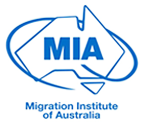
There are three different types of visitor visas available to visit Australia:
- eVisitor visa (subclass 651) – only for eligible passport holders mainly from European countries who wish to visit Australia for tourism or business purposes
- Electronic Travel Authority (subclass 601) – only for eligible passport holders mainly from some non-european countries who wish to visit Australia for tourism or business purposes
- Visitor visa (subclass 600) – if you are not eligible for one of the visas above or if you would like to extend your stay in Australia, you will need to apply for a Visitor 600 visa. This visa consists of four different streams:
- Tourist stream – includes holidays, recreation and seeing family and or friends
- Business Visitor stream – includes attending a conference, negotiation or business meetings
- Sponsored Family stream – for those interested in visiting their family in Australia, applicants will need to meet the migration regulations definition of ‘family’
- Approved Destination Status stream – for people from the People’s Republic of China who are travelling in an organised tour group
The Visitor 600 visa is a more complex application. Many documents are required to prove that you genuinely wish to visit Australia for a specific period of time. Some applicants will not be granted the permission to visit Australia even just for a few days.
It is not possible to work whilst holding any type of Visitor visa. A Visitor visa may be granted for single or multiple entries permitting 1 month up to 18 months stay in Australia depending on your particular situation.
Note: If you intend to visit Australia for medical treatment you will need to apply for the Medical Treatment visa (subclass 602). If you wish to transit through Australia, you will need to apply for a Transit visa (subclass 771).
Please note, if your application is not handled correctly your visa can be refused resulting in complications to stay in Australia or apply for another visa in future. To ensure your application is handled correctly and to obtain precise information for your specific situation please arrange an assessment with one of our Registered Immigration Specialists. Find out more about what a full migration assessment involves.








